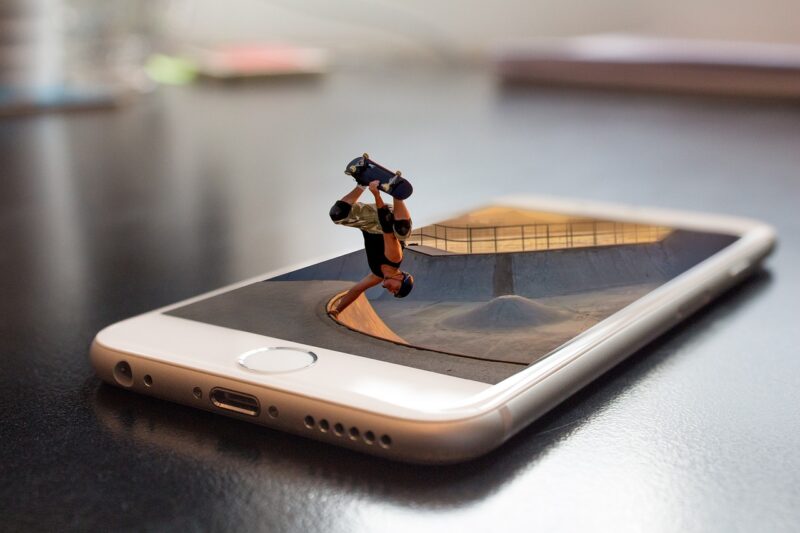iPhone vs. Android: Which Ecosystem Offers the Best Experience in 2024?
November 12, 2024

In the realm of smartphones, the age-old debate of iPhone versus Android continues to capture the attention of tech enthusiasts and casual users alike. Both platforms have evolved significantly over the years, offering unique features, functionalities, and user experiences that cater to various consumer preferences. In this article, we will delve into the strengths and weaknesses of both ecosystems to help you determine which smartphone platform offers the best experience in 2024.
1. User Interface and Ease of Use
One of the first things that users notice when picking up a smartphone is its user interface (UI). Apple’s iOS offers a streamlined, minimalistic design that emphasizes accessibility and simplicity. With a consistent layout and intuitive gestures, iPhone users often report a smoother onboarding process.
Android, on the other hand, offers a more customizable experience, allowing users to change everything from the home screen to the default apps. This flexibility appeals to those who enjoy personalizing their devices. However, this can lead to a steeper learning curve for new users.
Conclusion: If you value simplicity and ease of use, iOS might be your go-to choice. However, if personalization is important to you, Android holds a distinct advantage.
2. Hardware Variety and Choices
Apple’s iPhone line-up offers limited models each year, focusing on premium build quality and cohesive design. The latest models, like the iPhone 14 and 14 Pro Max, showcase cutting-edge technology and superior materials.
In contrast, Android phones come in an extensive array of choices, from budget-friendly devices to high-end powerhouses. Brands like Samsung, Google, and OnePlus offer varying features, price points, and design aesthetics. This diversity allows consumers to choose a device that fits their specific needs and budget.
Conclusion: If you prefer a wide selection with varied price options, Android wins here. For those who desire a consistently premium experience, iPhone is the better alternative.
3. App Ecosystem and Availability
When it comes to apps, the choice of platform can affect your productivity, entertainment, and overall experience. Apple’s App Store is known for its rigorous quality checks, ensuring that most apps are polished and secure. Many developers prioritize iOS for releasing new apps, often leading to iOS getting new apps ahead of Android.
On the flip side, Google Play Store offers a broader selection of apps, including various free options that may not meet Apple’s tight standards. This means that while the quality may vary, Android users can find many niche apps, open-source options, and customization apps that aren’t available on iOS.
Conclusion: iOS may have the edge in quality and early access to apps, while Android stands out for variety and flexibility in app choices.
4. Software Updates and Longevity
Apple is renowned for its consistent software updates. When a new version of iOS is released, it is typically available for all compatible iPhone models. This means that if you’ve purchased an iPhone, you can expect years of software support and updates.
On the other hand, Android’s update process can be fragmented due to the myriad of manufacturers. While Google’s Pixel phones receive timely updates, many other brands may delay updates or stop supporting older models altogether. This fragmentation can result in security vulnerabilities and a shorter lifespan for some Android devices.
Conclusion: If long-term software support is a priority for you, iPhone is the clear winner. Android has made strides in this area, but inconsistencies remain.
5. Privacy and Security
In today’s digital age, privacy and security are significant concerns for smartphone users. Apple positions itself as a leader in privacy, with features like App Tracking Transparency that allows users to control how their data is used. iOS is often regarded as a more secure operating system due to its closed environment and rigorous App Store policies.
Android has made advancements regarding security, especially with its regular updates. However, due to its open-source nature, it can be more susceptible to malware. Users must remain vigilant when downloading apps from third-party sources, which can pose risks.
Conclusion: If privacy and security are your main concerns, the iPhone is generally considered a safer investment.
6. Integration with Other Devices
Apple’s ecosystem is built around seamless integration between devices. If you own a Mac, iPad, or Apple Watch, the iPhone can effortlessly connect with them, allowing you to share files, receive calls, and much more without any hassle. This interconnectedness is a hallmark of the Apple experience.
Android, while capable of connecting across various devices, often lacks the same level of seamlessness. However, Google’s initiative towards a more integrated experience through services like Google Home and Wear OS is gaining traction, making it simpler for Android users to connect their devices.
Conclusion: If you are already invested in the Apple ecosystem, the iPhone offers unmatched integration. Android is improving, but may not yet match Apple’s level of connectivity.
7. Price and Value for Money
When it comes to price, Apple’s iPhone models tend to come with a premium. While some may argue that the higher price reflects the quality and longevity of the device, it may not fit every consumer’s budget. Conversely, Android phones span a vast spectrum of prices, making them accessible to a wider audience. You can find excellent budget options alongside flagship devices with cutting-edge technology.
Conclusion: If price is a concern, Android smartphones generally provide better options without compromising on quality, while iPhones offer value through longevity and premium features.
Conclusion: Choosing the Right Ecosystem for You
Ultimately, the choice between iPhone and Android depends on your personal preferences and needs. If you value simplicity, security, and a cohesive ecosystem, an iPhone may be the best option for you. If customization, variety, and affordability are top priorities, Android offers unrivaled flexibility.







